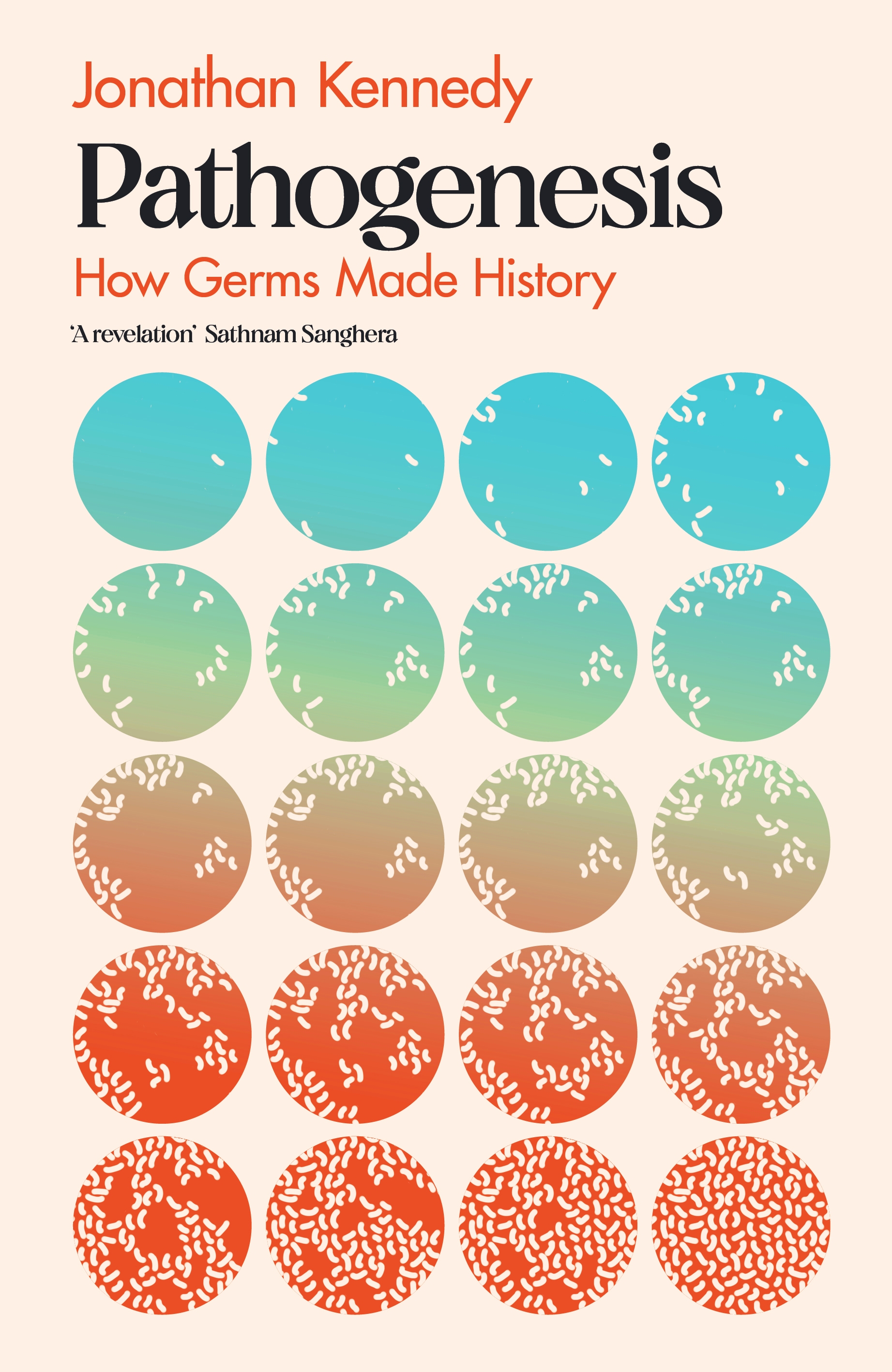The Cayapo tribe, a shade under 10,000 strong, lived in South America unacquainted with humans in the wider world until 1903. That year, they accepted a missionary who, along with news of salvation, brought new disease. By 1918, they numbered only 500, a mere 25 were around in 1927, and by 1950 just three living people could identify a Cayapo ancestor.
Jonathan Kennedy relates this sorry tale as emblematic of the potential calamity every time people are exposed to novel bacterial or viral illness. Whether they came from fellow humans or from closer contact with other species, nothing has caused more recorded human misfortune than plagues ripping through defenceless populations.
An academic offering their first trade book does better business with a "Big Idea". It need not be entirely new: an update will do. And it’s fair to regard Jonathan Kennedy’s big idea here – the one in the subtitle about disease shaping history – as an update of an old one, from William McNeill’s Plagues and Peoples back in 1976.
McNeill’s book was a classic, and something of a tour de force of historical excavation. Every hint of an epidemic in the days before germ theory – almost all of history, in other words – or passing comment about symptoms we can now link to a particular disease, were carefully woven into a sweeping account of past plagues. There is an excellent case for an update, after a half century that saw much new analysis of ancient remains – often of microbial DNA traces that were never decodable before.
 Where McNeill’s approach was primarily ecological, Kennedy perhaps emphasises how sharing infections, and which groups have become immune to them, have been crucial influences in human affairs over the millennia. It’s a worthwhile conceit for a trot through the whole of history, as long as you don’t take it too seriously. On the whole he doesn’t – there are nods here and there to other factors that might just have been important, from climate change to class struggle. But he insists that disease was the most important thing at many moments of world-shaking change.
Where McNeill’s approach was primarily ecological, Kennedy perhaps emphasises how sharing infections, and which groups have become immune to them, have been crucial influences in human affairs over the millennia. It’s a worthwhile conceit for a trot through the whole of history, as long as you don’t take it too seriously. On the whole he doesn’t – there are nods here and there to other factors that might just have been important, from climate change to class struggle. But he insists that disease was the most important thing at many moments of world-shaking change.
They begin with the move from an Earth where several types of human co-existed to one where Homo sapiens was the one left standing. He rehearses episodes central to McNeill’s narrative, such as the Black Death, and the devastation wrought by diseases brought to first South, then North America by European colonists. He adds to this displacement of nomadic hunter-gatherers by settled farmers; the fall of the Greek and Roman empires; growth of new religions; the quickening of capitalism in formerly feudal societies; the way slavery became embedded in colonial economies; and even the Agricultural and Industrial revolutions. In doing so, he builds quite a good case that the modern world would look quite different if pathogens had not been with us every step of the way.
McNeill wrote when medical confidence was at a high, with the most optimistic commentators foreseeing an end to infectious disease. That hope proved wildly unrealistic, and Kennedy’s more sober conclusion takes account of newly emerging and re-emerging diseases, as well as ones that could have been eliminated if those sufficiently wealthy to pay cared enough.
His discussion here is informed by his day job as a lecturer in global public health, although this leads to a slight blurring of focus. Present-day patterns of ill-health owe much to startling inequalities, within and between nations, and to a familiar list of non-infectious diseases. These are urgent contemporary concerns, but make for a penultimate chapter that sometimes feels as if it has been imported from another book. Perhaps Kennedy should write that book, but calling poverty and obesity “pandemics” in this one strikes an odd note in a narrative that is built on old-style epidemics of infection.
Then, of course, there is our own most recent genuine pandemic to deal with. You’d guess this came upon the author after he got this book under way, and the closing thoughts on coronavirus are a little underdeveloped. There’s a hand-waving suggestion that “Covid-19 will be another crucial inflection point in the history of our species,” but the trends highlighted – pondering our place in the world’s ecosystems, spending more time online, and shifts in geopolitical influence – seem more like things that were under way before Covid, and where it is too soon to say much about any lasting influence of the pandemic.
One could emphasise a different lesson. The vivid accounts here of past pandemics – with their swirl of fading hope, despair, bafflement, disbelief and cobbled-together explanations that often descend into conspiracy theory – do seem somewhat familiar when our society has just been stress-tested by a new disease outbreak. But how lucky we were, both in our access to a vaccine in a miraculously short time, and the relative mildness of the disease in this case. Yes, there was much suffering and death, and a great deal of unhappiness. Yet demographically the whole affair was barely a blip. Kennedy reckons the death toll in the UK was 0.27 per cent of the population. Compare the Black Death, now estimated to have killed 60 per cent of Europeans.
That is a shock of an altogether different kind. Suppose the next pandemic – whenever it comes – even looks as if it could reach a decent fraction of that level. Our current, post-Covid, “debates” about public health versus individual liberty, or assessing merits of specific measures in hindsight, are mostly fairly dumb thanks to the reliable stupidity of the right-wing press. If we face a more serious pandemic threat they will be swept instantly into irrelevance.
- Pathogenesis: How Germs Made History by Jonathan Kennedy (Torva, £25)
- More book reviews on theartsdesk















Add comment